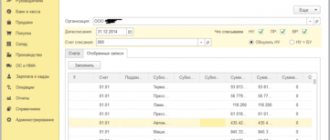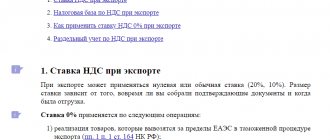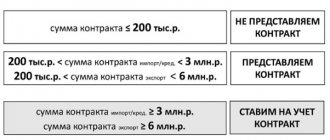The legislation establishes certain days that are considered holidays and, accordingly, are days off. This:
- January 1, 2, 3, 4 and 5—New Year holidays;
- January 7—Christmas Day;
- February 23 - Defender of the Fatherland Day;
- March 8—International Women's Day;
- May 1 - Spring and Labor Day;
- May 9 - Victory Day;
- June 12—Russia Day;
- November 4 is National Unity Day.
It happens that the company has a shift work schedule. In this case, it is permitted to involve employees in work on these days. But pay for shift work on these days differs from regular working days. We will discuss these features below.
Let's make a reservation right away that there are day and night shifts. They are not paid the same.
In general cases, an additional payment of at least 20% of the established rate is made for night shifts.
Calculation formulas
To calculate the additional payment for a holiday, you need to decide what wage system exists at the enterprise (hourly, daily or salary).
The calculation rules are regulated by Article 153 of the Labor Code of the Russian Federation.
Hourly rate calculation
The following formula applies:
Rate per hour x 2 x number of hours worked on a holiday
Calculation at daily rate
In this case, the formula will be as follows:
Daily rate x 2
Calculation based on monthly salary
If there was no overtime of the standard time per month, then the additional payment to the salary is equal to the daily or hourly rate, which are calculated as follows:
- Rate per day = salary: number of days in a month (working)
- Rate per hour = salary: number of hours per month (working)
If there was overtime according to the standard time for the month, then the additional payment for holidays is calculated as follows:
Daily rate x 2
or
Rate per hour x 2 x number of hours worked
If the shift falls on a holiday night, then double payment is made (for holiday hours and for the night shift).
These values are calculated separately and added together.
To calculate the time worked on a holiday night (from 22.00 to 6.00), one must also take into account the fact that the night shift should be reduced by 1 hour without further work.
Payment for salaried employees on holidays
If a salaried employee was not required to work during the New Year holidays, then he is not entitled to additional payments. But the employer is obliged to pay the full official salary if the subordinate began performing official duties on January 11 and worked all 15 working days of the month.
If the salary worker was nevertheless called on the weekend, then payment for holidays in January 2021 depends on two conditions:
- whether the specialist worked within the monthly norm or above it;
- whether the employee took time off or refused it.
If work on weekends is within the monthly working time norm, then calculate the additional payment using the formula:
Official salary / number of working hours in a month × number of hours worked on a holiday.
If work on a weekend exceeded the monthly working time standards, the employee should decide whether to take time off or not.
If a specialist decides to take a day off, here’s how New Year’s holidays are paid in 2021:
Official salary / number of working hours in a month × number of hours worked on a holiday.
If you decide not to take time off, the amount of additional payment increases at least twice:
Official salary / number of working hours in a month × number of hours worked on a holiday × 2.
Let us remind you once again that the employer has the right to approve an increased amount of additional payment, for example, not double, but more. But payment of less than double the amount is unacceptable (Article 153 of the Labor Code of the Russian Federation).
The employee’s decision to take time off (to take it or not) will have to be documented. To do this, the employee writes a statement in the month in which he worked, that is, in January.
Examples of calculations
To make it more clear and visual, let’s look at these points using specific examples.
EXAMPLE 1
The organization has established a shift work schedule of three days every other day from 9.00 to 9.00 the next day. Pilkin I.A. took up his shift on March 8 at 9.00. He is paid by the hour. The cost of his hour of work is 45 rubles. (for convenience, we will calculate this amount already taking into account personal income tax, i.e. exactly 45 rubles per hour the employee receives in his hands).
We consider additional payments for holidays. First, let's calculate the number of hours for which the bonus will be paid:
- daytime hours: 11 hours (from 9.00 to 22.00)
- night hours: 2 hours (from 22.00 to 24.00)
Let us assume that the collective agreement establishes that additional payment for night hours is made in the amount of 20% of the hourly rate.
In total we get:
- per day: 45 x 11 hours. = 495 rub.
- per night: (45 + 20%) x 2 hours = 108 rub.
Add up: 495 + 108 = 603 rubles.
In total, the additional payment for a shift that fell on a holiday was 603 rubles.
EXAMPLE 2
Employee Sidorov I.A. works in shifts. The tariff rate for him is 200 rubles per hour. The duration of his shift is 10 hours. Let's calculate how much additional payment he will receive for January 2021 if his shifts fell on the 1st, 2nd, 5th, 6th of this month. He didn't have night shifts.
We count:
200 rub. x 10 hours x 4 days = 8,000 rub.
Do you work on weekends or holidays?
I work if it happens to be a shift I work if management asks I absolutely do not work, I rest I will refrain from answering What are weekends and holidays?
EXAMPLE 3
To the same employee Sidorov I.A. Instead of hourly wages, a salary of 30,000 rubles was set. Let’s assume that he worked his shifts in full. The standard number of hours per month is 136 hours. Let's calculate the additional payment for holidays in January. Shifts fell on the 1st, 2nd, 5th, 6th.
Let's do the math:
- 30,000 rub. : 136 hours = 220.58 rub. – hourly tariff rate
- RUB 220.58 x 10 hours x 4 days = 8823.20 rub. – additional payment for four holidays.
EXAMPLE 4
The employee is given a daily wage rate of 3,000 rubles. Kisilev A.A. works 2/2 shifts. In May he worked 15 shifts. May 1 and May 9 fell as working days. We consider additional payments for holidays.
Let's do the math:
2 days x 3000 rub. = 6000 rub. – the employee will receive an additional salary for holidays.
How to register and pay for work on a shift schedule during the New Year holidays
According to the schedule, the employee’s working days fall on the New Year holidays, i.e. the employee must work on January 2, 3, 6 and 7. How to properly register and pay for them?
New Year holidays (New Year holidays and Christmas) last from January 1 to January 8 and are non-working holidays for all employees of the organization (regardless of work schedule), therefore, attracting employees to work on these days has a number of features (Part 1 of Article 112 of the Labor Code RF).
According to the general rule (Part 8 of Article 113 of the Labor Code of the Russian Federation), employees are recruited to work on weekends and non-working holidays by written order of the employer and only with the consent of the employee. However, this rule does not apply to employees whose working day (according to the shift schedule) falls on a public holiday. Days off for such employees are provided on different days of the week according to the internal labor regulations and shift schedule.
Thus, a day that is a non-working holiday according to the production calendar may not be a day off for an employee who works on that day according to a shift schedule. This is a working day for him. Therefore, to attract him to work, there is no need to issue an order (instruction) and obtain consent to work on a public holiday. These documents should be completed only if the employee is involved in work on a day that is a day off for him in accordance with the schedule.
Regarding payment for work during the New Year holidays, you must keep the following in mind.
An employee’s shift work schedule assumes that his work shift may fall on weekends – Saturday or Sunday. However, such days are not considered to be work on a holiday because a particular employee's days off are determined by his or her schedule and not by the regular calendar. Consequently, Saturday and Sunday can be working hours for him and paid at a single rate.
This rule does not apply to holidays, which are such for all employees (regardless of their work schedule).
Thus, if an employee’s work shift falls on a non-working holiday, his work must be paid at an increased rate in accordance with the provisions of Art. 153 Labor Code of the Russian Federation.
Work on a holiday for employees with a shift schedule is paid at least double (Part 1 of Article 153 of the Labor Code of the Russian Federation), namely:
- for piece workers - at no less than double piece rates;
- employees whose work is paid at daily and hourly tariff rates - in the amount of at least double the daily or hourly tariff rate;
- employees receiving salary:
- in the amount of a single daily or hourly rate (part of the salary for a day or hour of work) in addition to the salary, if the work on a weekend (holiday) was carried out within the monthly working hours;
- in the amount of no less than double the daily or hourly rate (part of the salary for a day or hour of work) in excess of the salary, if the work was performed in excess of the monthly working time standard.
Source: 1C:ITS
Processing on a shift schedule
There are situations when, even with a shift schedule, overtime (i.e., working hours beyond the established norm).
The law requires payment for such situations at double the rate. What happens on holidays? Here the payment is also double. For clarity, here are a few examples:
EXAMPLE 1
At a housing management company, locksmiths work in shifts with a 2/2 schedule. Employee Klimov V.V. was assigned to work off-shift on November 4 due to a water line failure. The accident was resolved within 5 hours. Klimov has an hourly wage of 60 rubles/hour.
We calculate the additional payment:
60 rub. x 5 hours x 2 = 600 rub.
EXAMPLE 2
In May the standard hours are 143 hours. Employee Korovin T.T. worked 160 hours this month, working on a shift schedule. Of these, 8 hours on May 1 and 9 hours on May 9. The employee's salary is 40,000 rubles. Since the number of hours exceeds the norm this month, payment for holidays is subject to double payment (Article 153 of the Labor Code of the Russian Federation).
- We determine the hourly tariff rate: 40,000 rubles. : 143h. = 279.72 rub.
- We calculate the additional payment for holidays: (8 hours + 9 hours) x 279.72 x 2 = 9510.48 rubles.
All additional payments and salary allowances must be reflected in the employment contract. Do you work in the public sector and don’t know how to correctly calculate your long-service bonus? Our article will help you with this!
If you resign of your own free will, then you will find the material on payments upon dismissal of this type useful.
How to pay overtime during winter break
If an employee performs official duties during the New Year holidays overtime, payment for New Year holidays, according to the law of the Russian Federation, is made according to the rules of Article 153 of the Labor Code of the Russian Federation - at least in the amount of double the tariff rate. The payment is not taken into account when determining the duration of overtime work, subject to payment at an increased rate, in accordance with Art. 152 Labor Code of the Russian Federation.
To correctly pay for holidays in January, correctly formalize the recruitment of employees to work. To do this, you first need to obtain the consent of the staff, issue an order from the manager, which is familiarized with the signature of all involved subordinates. The order must provide the reasons for the need to work on New Year's holidays and a list of persons who will have to work on the holiday. If an employee who has agreed to work on holidays does not come to work, disciplinary action will be taken against him.
Read more: We issue an order for overtime work
Changes in labor legislation from July 1, 2021
Since July 1, 2021, important changes have occurred in labor legislation affecting most organizations and individual entrepreneurs that have hired employees. In a new way, it is necessary to conclude employment contracts, pay for overtime work, work on weekends and holidays.
Payment for overtime work under the Labor Code of the Russian Federation from July 1, 2021 (new edition of Article 152 of the Labor Code of the Russian Federation)
Now, according to the new version of Article 152, which regulates wages during overtime, overtime must be calculated in a new way.
Let me remind you that overtime is considered work beyond the total duration. The total duration is no more than 40 hours per week (Article 91 of the Labor Code of the Russian Federation). These hours can be distributed as desired by agreement of the parties, but the total duration should not be higher. Anything in excess is paid differently.
According to amendments to the Labor Code, now if an employee works on a holiday or day off more than the norm, then these days must be paid only once in double amount. The previous procedure, when it was necessary to pay for the same hours again as overtime (at time and a half for the first two hours, at double time for the remaining hours) is no longer applied.
Payment for work on weekends and holidays according to the Labor Code of the Russian Federation from July 1 (new edition: Article 153 of the Labor Code of the Russian Federation)
Now, if an employee went to work on a day off for half a day, the organization must pay double only for the hours that were actually worked.
Previously, the employer calculated the cost of one hour on a holiday and paid for it. If an employee went to work on regular weekends and not holidays, then there were no clear rules for payment. Some companies paid the day off as a full day, while others paid for the time worked.
Part-time work and division of the day: changes from July 1, 2021 (new edition: Article 93 of the Labor Code of the Russian Federation)
Part-time work. Amendments defining the procedure for establishing partial time (week, day) were introduced to Article 93 of the Labor Code of the Russian Federation. This article states that the employer can establish for certain categories of employees either a part-time week (less than 40 hours) or a part-time day (less than 8 hours per day). That is, the right to choose one of these options is allowed.
Application from an employee to establish a part-time working schedule
From July 1, Article 93 of the Labor Code of the Russian Federation is applied in a new edition. According to the new rules, the employer has the right to establish both part-time options at once. For example, a 4-day week with a 7-hour workday on Mondays and Fridays.
Employers introduce part-time work at the request of the employees themselves. This is their right, but not their obligation. At the same time, an exception is provided for some employees. In particular, for pregnant women, workers with children under 14 years of age, as well as workers caring for a sick family member. They have the right to demand part-time work from the employer, and the employer does not have the right to refuse. From July 1, the part-time work regime will be formed according to their wishes.
Lunch break according to the Labor Code of the Russian Federation from July 1, 2021 (new edition: Article 108 of the Labor Code of the Russian Federation)
Previously, the right to a lunch break was guaranteed to all employees, regardless of the length of their day. This right is established by Article 108 of the Labor Code of the Russian Federation. According to this norm, workers could take a break for lunch, which should not exceed 2 hours. The minimum break is 30 minutes.
The new version of Article 108 stipulates that employees who work four hours or less a day need not be given a lunch break. However, this restriction should be fixed either in an employment or collective agreement.
Irregular working hours from July 1, 2021 (new edition: Article 101 of the Labor Code of the Russian Federation)
From July 1, the employer does not have the right to establish an irregular day for an incomplete week and part-time working day. For example, when an employee works 4 days a week with a 6-hour working day.
An irregular work schedule for a part-time week can now be introduced only when the employee works full time. Thus, the week may be incomplete, but the day itself must be complete. Otherwise, the employer has no right to introduce an irregular regime.
In addition, another important change in labor legislation, which comes into force on July 1, is the increase in the minimum wage. The minimum wage from July 1 is 7,800 rubles.
Deputy Prosecutor
Kosikhinsky district Yu.V. Podoprosvetova









